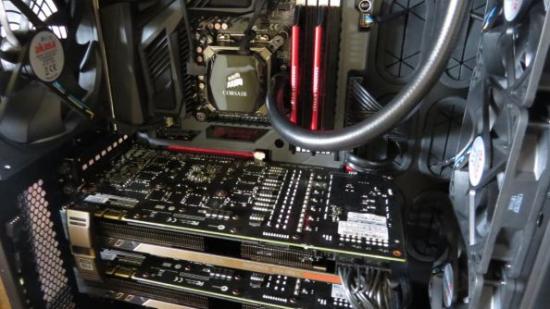The UK games market made a record-breaking £5.11 billion in 2017, despite a decrease in overall spending from thrifty Brits.
According to trade body UKIE, the UK games market grew by 12.4% from 2016, even though overall consumer spending and household income is down year-on-year, with PC hardware seeing the biggest growth.
Get in on the action. Check out our list of the best VR games on PC.
UKIE announced the figure at their annual games market valuation event in London, with the trade body claiming the growth of the UK games sector is down to “world-class content for an ever-expanding eager audience.”
According to GamesIndustry.biz, the biggest area of growth was in PC hardware. The overall sales of PC hardware have increased by 51% from last year, taking revenue from £249 million to £376 million. UKIE chalked this down to the growth of VR, with over £100 million spent on VR headsets last year alone, making up almost a third of total PC hardware sales. Steam Hardware figures estimate 0.28% of Steam users currently own either an Occulus Rift or HTC Vive headset.
The rise in PC hardware revenue was also attributed to the increased number of players using 4K monitors and overall playing more PC games, while a smaller boost may have come from players buying higher quality GPUs to mine cryptocurrency.

In addition to growth in PC hardware sales, console sales were up 29.9% which has been credited to the successful launch of the Nintendo Switch and continued success of PlayStation, which continued to sell more than one million units.
Meanwhile software continues to account for the majority of sales revenue in the industry, increasing by 8.3% from 2016 to make up £3.56 billion of overall sales.
The growth of the UK games industry is surprising as, according to the BBC, UK wages have been “rising at a slower pace than inflation”, meaning Brits have less disposable income to spend in stores.
